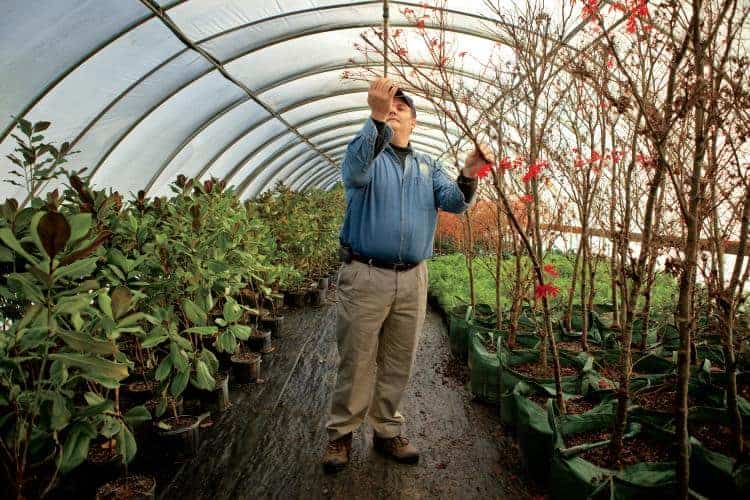If you have a green thumb, this career pathway may be ideal for you. People who work in the Plant Systems pathway study plants and their growth.
This helps producers of food, feed and fiber crops continue to feed a growing population while conserving natural resources and maintaining the environment.
Individuals in this pathway also develop ways to improve the nutritional value of crops and the quality of seeds. They use genetic engineering to develop crops resistant to pests and drought.
Industry Outlook
Demand for food and fiber will increase as the world’s population grows and the demand for U.S. agricultural exports increases as developing nations improve their economies.
As farmers try to grow more food with fewer resources and the public concern over food safety increases, plant scientists are using new avenues of research in biotechnology to develop plants and food crops that require less fertilizer, fewer pesticides and herbicides, and less water for growth. As these technological advances increase, jobs in the field will increase as well.
Career Opportunities
Popular jobs within this field include:
• Agronomist
• Farmer/rancher
• Fruit and vegetable grower
• Plant geneticist
• Seed analyst
• Nursery/greenhouse manager
• Golf course manager
• Soil and water specialist
Education Requirements
Training requirements for plant scientists and technicians depend on their specialty and on the type of work they perform. A technical degree in plant science is sufficient for some jobs in assisting scientists to perform applied research or basic research, but a master’s or doctoral degree is required to supervise and conduct basic research.
A typical undergraduate agricultural science curriculum includes communications, economics, business, and physical and life sciences courses. Those preparing to work as a crop or soil scientist take courses in plant pathology, soil chemistry, entomology, plant physiology and biochemistry, among others.
Prepare Now
High school students can prepare themselves for college by taking multiple science courses, especially biology and chemistry. Having a basic knowledge of physical and life sciences will aid in the more difficult science courses in college.
Land evaluation, plant identification and other related FFA career development events will help you determine if this pathway is the right fit for you. Some members also find it useful to incorporate this field into their supervised agricultural experience programs. Related SAEs include placement on a row-crop farm or agricultural research facility, working at a greenhouse or nursery, growing vegetables in a backyard garden, or helping manage the turf at a golf course, park or other sports facility.













